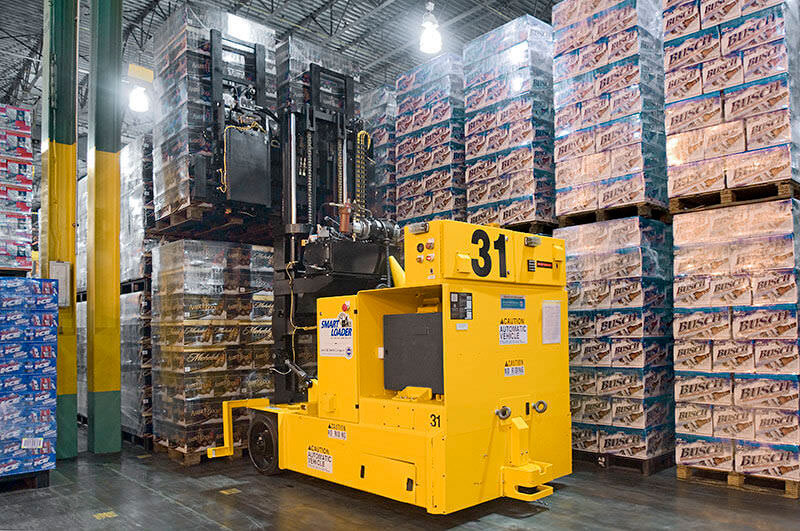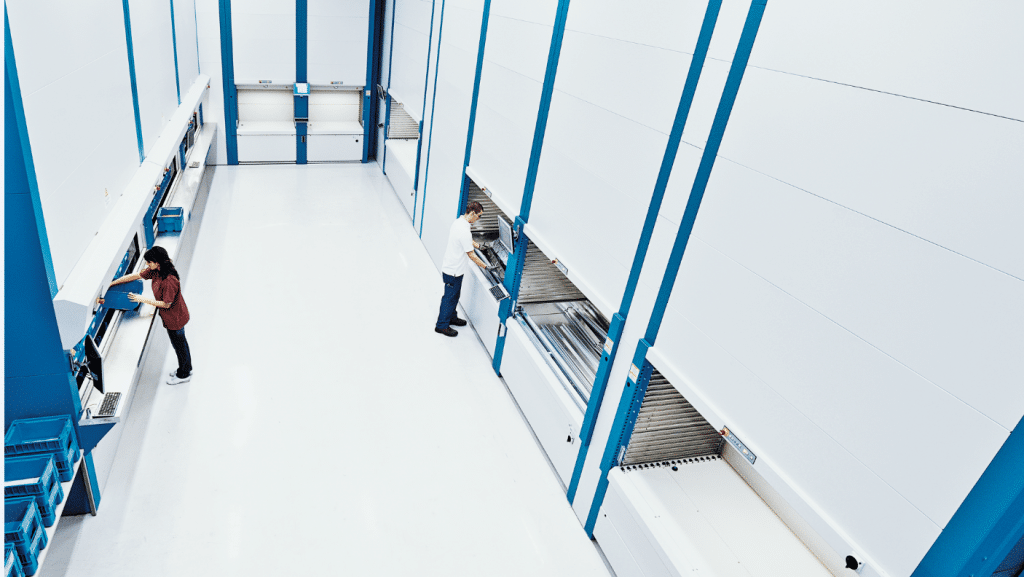Amid economic uncertainty, Warehouse Automation Systems emerge as invaluable assets. They play a pivotal role in reducing labor expenses, streamlining inventory management, and elevating operational efficiency. These benefits bolster customer loyalty and ensure business longevity.
Securing a skilled labor force for warehouse operations remains a persistent challenge. Recent studies reveal that a mere 3% of the Gen-Z demographic express an interest in logistics, leaning toward STEM-related fields. In this context, modern devices such as handheld tablets, robots, and augmented reality wearables, as indicated by the Zebra Warehouse Vision Study, prove instrumental in attracting and retaining workers, aligning with the workforce’s preference for technology-driven environments.
Goods-to-Person (G2P) automation offers a strategic edge to businesses confronting economic downturns. By enhancing efficiency, accuracy, scalability, and reducing labor costs, G2P automation equips companies not only to weather economic challenges but also to excel and maintain a competitive edge. In a world emphasizing adaptability and efficiency, G2P automation becomes a valuable asset during challenging times.
Efficiency Enhancement:
Economic uncertainties necessitate businesses to achieve more with less. G2P automation streamlines workflows by delivering items directly to workers (and in some cases consumers), eliminating the need to search for products within the warehouse. This efficiency boost translates to expedited order fulfillment, reduced labor costs, and heightened overall productivity.
Precision and Customer Satisfaction:
Customer satisfaction becomes pivotal in challenging economic climates, with loyal customers serving as a lifeline for businesses. G2P automation ensures exceptional order accuracy and quality control, minimizing the risk of errors and returns. Satisfied customers are more likely to remain loyal and recommend businesses to others, cultivating a robust customer base.
Mitigating Labor Shortages:
During economic downturns, businesses seek cost reductions, which worsens labor shortages. automation mitigates this challenge by reducing the physical strain on workers and decreasing the need for an extensive labor force. The technology enables businesses to sustain efficient operations, even with reduced staffing levels.
Scalability and Adaptability:
G2P systems demonstrate flexibility and adaptability to changing operational requirements. During economic downturns, businesses may need to adjust their operations, scale down, or diversify to meet evolving market demands. G2P automation readily reconfigures to accommodate these changes, ensuring businesses remain agile and responsive.
Cost-Efficiency:
Operating costs become a pressing concern during economic downturns. G2P automation contributes to cost reduction through decreased labor expenses, minimized error-related costs, and streamlined inventory management. This cost-effective approach empowers businesses to maintain profitability in challenging economic environments.
Today, navigating constant change and uncertainty requires a forward-looking approach, emphasizing adaptability and efficiency in warehouse operations. The importance of seeking expert guidance cannot be overstated. Partnering with an integration company you can trust, like RMH Systems, is paramount. With in-house experts who tailor solutions to your needs and budget, RMH Systems offers honest and valuable advice. They can help you start small and scale as your business grows, ensuring that your warehouse automation journey is a successful one. In times of economic uncertainty, such a partnership can be the key to resilience and success.

